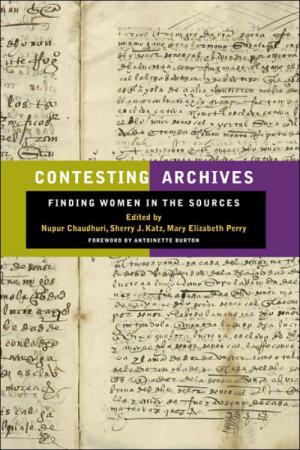Contesting the Archives: Finding Women in the Sources

The collection of essays that encompass Contesting the Archives: Finding Women in the Sources will resonate well with those scholars who have endeavored to conduct research on women in a historical, cultural and/or economic context, for these scholars are well aware of the dearth of complete and detailed historical records on their subjects. In addition, the compilation of essays can serve as instructional material for those scholars who are just beginning to delve into such research.
Unfortunately, incomplete historical records plague the compilation of histories of women not only in the distant past, but also in the present. It is stated in the foreword for the text that while “an archive is merely a repository of information”, the scholars whose research efforts are detailed in the text consider the archives “as a site for the production of knowledge.” As the contributors to this text exhibit in their essays, the information presented on women in official and unofficial archives should not be taken at face value. Rather, the information should be contextualized using a variety of other sources in order to provide a more holistic view of that particular woman’s place in history. This is the main takeaway from the text.
As an academic who has done a significant amount of research on women’s peace movements, the challenges in research of women’s histories presented by the authors in Contesting the Archives: Finding Women in the Sources served as inspiration for additional research I would like to undertake. I believe this would be the reaction of many academics to this text. In particular, I found the chapter on constructing oral histories in Mozambique extremely interesting in terms of my own research experience. In conducting field research in Liberia, the compilation of the oral history of the women’s peace movement in that country gave a depth and feeling to the story of that particular movement that otherwise would not have been able to be rendered.
It is incumbent upon scholars conducting similar research to endeavor to give voice to histories of women at all levels of society that otherwise would go untold. This text provides an in-depth tool-kit on how to go about meeting this challenge.